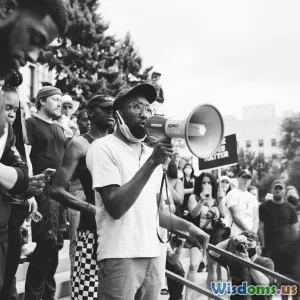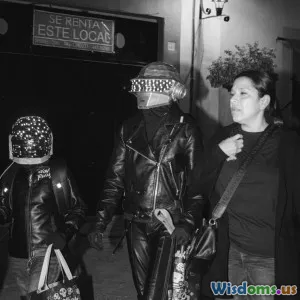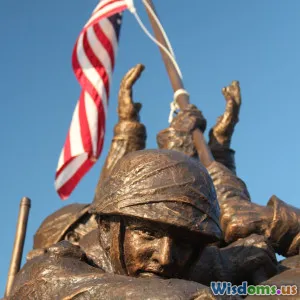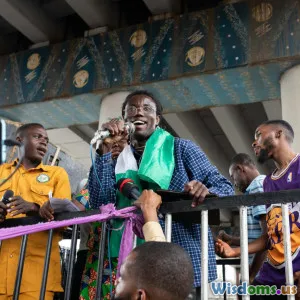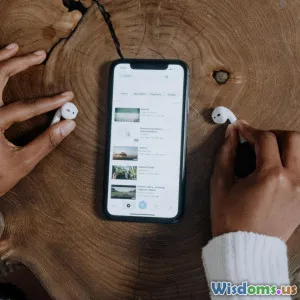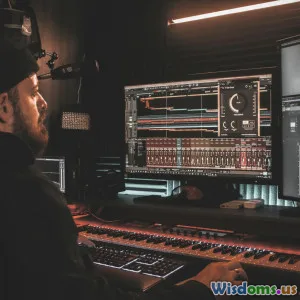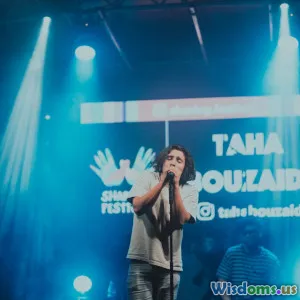Can Music Festivals Really Be Platforms for Political Activism
8 min read Exploring how music festivals serve as powerful catalysts for political activism and social change worldwide. (0 Reviews)Can Music Festivals Really Be Platforms for Political Activism?
Music festivals are often seen as celebrations of culture, sound, and community. But beneath the pulsating beats and blazing lights lies a potent force that can mobilize societies — political activism. From the legendary Woodstock Festival in 1969, embodying the counterculture resistance against the Vietnam War, to contemporary festivals advocating climate change and social justice, music events repeatedly function as rallying points for political expression and activism.
This article explores the complex relationship between music festivals and political activism, analyzing whether these gatherings can truly foster meaningful social change or simply offer fleeting moments of solidarity.
The Historical Roots of Activism in Music Festivals
Music festivals have historically served as fertile ground for political messaging. The most iconic example is Woodstock 1969, which was not only a musical extravaganza but a vivid protest against war, inequality, and establishment norms in the United States. More than 400,000 people gathered, embodying ideals of peace, love, and resistance.
Similarly, the Newport Folk Festival famously became a platform for civil rights advocacy in the 1960s, hosting artists like Bob Dylan and Joan Baez who intertwined folk music with political protest.
Case Study: Woodstock’s Political Legacy
Woodstock epitomizes how a music festival can rally a generation’s social consciousness:
- The festival’s unofficial motto was “3 Days of Peace & Music,” symbolizing opposition to the Vietnam War.
- It amplified anti-war sentiments, resonating internationally and influencing public opinion.
- Organizers donated proceeds to anti-war charities, blending entertainment with tangible activism.
Thus, Woodstock is often seen as the prototype for politically engaged music festivals.
Mechanisms Through Which Music Festivals Enable Activism
So why are music festivals good platforms for activism? Several key mechanisms contribute:
1. Massive, Diverse Audiences Gathered in One Place
Festivals draw tens or hundreds of thousands of attendees who may not ordinarily engage in political discourse. This concentration creates a unique opportunity to expose a broad demographic to activism.
2. The Emotional Impact of Music
Music evokes powerful emotions that can deepen commitment to causes. Songs with activist lyrics or performances by politically active artists can inspire attendees to rethink issues and feel motivated to act.
3. Visibility and Media Coverage
High-profile festivals enjoy extensive press coverage, amplifying political messages shared during the event beyond those physically present.
4. Integration of Advocacy Spaces
Many festivals incorporate dedicated areas for activist groups, informational booths, workshops, and voter registration drives, facilitating direct engagement.
Contemporary Examples Demonstrating Festival-Based Activism
Glastonbury Festival
One of the world's largest music festivals, Glastonbury includes sections explicitly committed to environmentalism and social justice, such as Greenpeace stalls and advocacy forums. The festival’s history shows a strong commitment to activism alongside entertainment.
The Women’s March Festival
Following the 2017 US Women’s March, several music-focused events emerged aiming to maintain momentum on gender equality and women’s rights, blending performances with speeches and activist workshops.
Global Citizen Festival
Global Citizen Festival exemplifies this synergy by dedicating itself to ending poverty and climate change. It compels festivalgoers to engage in activism, such as petitions and political meetings, as part of the ticket entry process.
Measuring the Impact: Do Music Festivals Drive Real Political Change?
While music festivals can raise awareness, critical questions remain about their long-term impact.
Benefits
- Increased Awareness and Education: Attendees often report gaining new knowledge about social/political causes.
- Community Building: Festivals create social spaces that encourage sustained activism beyond the event.
- Engagement of Youth: Young people are particularly likely to be inspired and involved.
Challenges
- Ephemeral Attention: The energizing environment may not translate into sustained political activity post-festival.
- Commercialization Risks: Sponsorships and commercial interests sometimes dilute or co-opt political messages.
- Echo Chambers: Audience demographics can be homogenous, limiting outreach to wider populations.
Expert Opinions on Music Festivals as Activist Platforms
According to Dr. Sarah Hill, an ethnomusicologist at University of Manchester:
"Music festivals can democratize political knowledge by embedding messages in cultural experiences—this often reaches people in ways traditional activism cannot. However, festival-based activism must be consciously sustained through follow-up efforts to avoid being merely symbolic."
Activist and musician Joan Baez emphasized that:
"Music has the power to unite disparate peoples under shared ideals. Festivals embody that possibility, providing a palette for hope and resistance."
Recommendations for Maximizing Activism at Music Festivals
- Intentional Programming: Curate lineups that include overtly political artists and relevant workshops.
- Partnerships with NGOs: Collaborate with advocacy organizations to provide educational material and mobilize action.
- Amplify Marginalized Voices: Elevate underrepresented communities and issues often overlooked in mainstream discourse.
- Sustain Engagement: Develop post-festival campaigns encouraging participants to continue activism locally.
Conclusion: Beyond the Music—Can Festivals Change Politics?
Music festivals possess genuine potential as platforms for political activism. Their unique capacity to gather diverse populations, evoke emotional engagement, and create vibrant social spaces renders them advantageous to spreading political messages and encouraging activism.
Historic events like Woodstock laid foundational examples, and contemporary festivals continue to embrace activism, though obstacles like commercialization and fleeting attention persist.
The power of festivals rests not only in the performances but in integrating sustained political engagement, empowering fans to transform inspiration into action long after the music fades.
For anyone seeking to create or participate in impactful political activism, music festivals are far more than parties — they can be crucibles for change when thoughtfully leveraged.
Featured Image suggestion: Crowds at a music festival holding political signs with a sunset backdrop.
References and Further Reading:
- "Woodstock and the Cultural History of the 1960s," Journal of American History.
- Global Citizen Festival official website.
- Interview with Dr. Sarah Hill in Ethnomusicology Today.
- "The Politics of Music Festivals," Oxford Research Encyclopedia of Politics.
Rate the Post
User Reviews
Popular Posts










